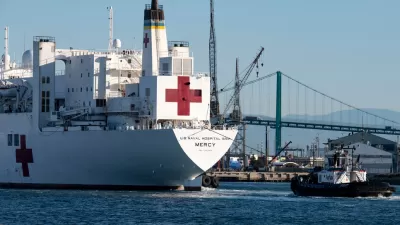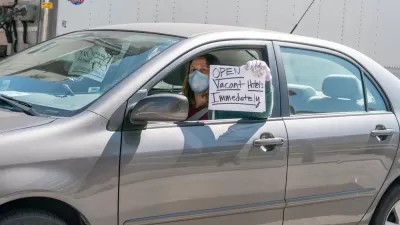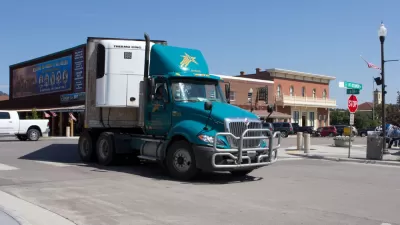In the past, owning a car in New York City made little sense for most people. But the pandemic has many residents reconsidering their transportation options.

"Car ownership in New York was once generally reserved for those who worked in transit deserts, those who use 'summer' as a verb, those with second homes (these last two often being the same person), who could afford garages, or those who lived in the more suburban parts of the outer boroughs, with actual driveways. Not owning a car, not knowing how to drive, or doing so poorly was a point of pride," writes Foster Kamer.
The pandemic has dramatically changed car ownership trends in New York, says Kamer. A variety of factors have contributed to an increase in demand for cars, including the desire to travel by a mode perceived to be safer, the ability to leave the city, and more disposable income as people forgo activities such as dining out and traveling.
Car registrations in June and July were up 18 percent compared to the same time last year. "Many of these New Yorkers are finding one of the most valuable quantities money can buy right now: peace amid a pandemic, relief in actual escapism," notes Kamer.
FULL STORY: The Great Gotham Vroom Boom of 2020

Planetizen Federal Action Tracker
A weekly monitor of how Trump’s orders and actions are impacting planners and planning in America.

Congressman Proposes Bill to Rename DC Metro “Trump Train”
The Make Autorail Great Again Act would withhold federal funding to the system until the Washington Metropolitan Area Transit Authority (WMATA), rebrands as the Washington Metropolitan Authority for Greater Access (WMAGA).

The Simple Legislative Tool Transforming Vacant Downtowns
In California, Michigan and Georgia, an easy win is bringing dollars — and delight — back to city centers.

In These Cities, Most New Housing is Under 441 Square Feet
With loosened restrictions on “micro-housing,” tiny units now make up as much as 66% of newly constructed housing.

Albuquerque’s Microtransit: A Planner’s Answer to Food Access Gaps
New microtransit vans in Albuquerque aim to close food access gaps by linking low-income areas to grocery stores, cutting travel times by 30 percent and offering planners a scalable model for equity-focused transit.

This City Will Pay You to Meet Your Neighbors
A North Kansas City grant program offers up to $400 for residents to throw neighborhood block parties.
Urban Design for Planners 1: Software Tools
This six-course series explores essential urban design concepts using open source software and equips planners with the tools they need to participate fully in the urban design process.
Planning for Universal Design
Learn the tools for implementing Universal Design in planning regulations.
Smith Gee Studio
City of Charlotte
City of Camden Redevelopment Agency
City of Astoria
Transportation Research & Education Center (TREC) at Portland State University
US High Speed Rail Association
City of Camden Redevelopment Agency
Municipality of Princeton (NJ)





























